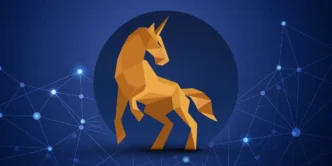Prediction market startup Kalshi has launched lawsuits against both New Jersey and Nevada after the two states attempted to shut down its new sports trading operations. Kalshi is arguing that because it operates under federal regulation, state gaming commissions lack the jurisdiction to impose restrictions on its platform.
Speaking last week at a venture-focused event in San Francisco, Kalshi CEO Tarek Mansour emphasized the startup’s stance. “We’re regulated at the federal level,” he said. “State law doesn’t really apply.”
If Kalshi wins in court, the company could open the door to dominating the booming sports betting space. However, the legal challenge also sets the stage for broader tensions between state regulators and federal oversight.
This isn’t the first time Kalshi has pushed back against regulatory authorities. In a high-profile case last year, the company scored a major win over the Commodity Futures Trading Commission (CFTC), gaining approval to facilitate over $1 billion in trades tied to the outcome of U.S. political elections.
“We’ve had to endure a lot over the past five years fighting the CFTC,” said Mansour. “But I’d do it all again.”
Expanding From Elections to Sports
Kalshi broadened its platform in January, entering the realm of sports-related prediction markets. The startup enabled users across the U.S. to make predictions on high-profile events like March Madness and the Super Bowl, even in states where gambling is officially banned.
However, six states where sports betting is legal — including Nevada, New Jersey, Illinois, Maryland, Ohio, and Montana — quickly pushed back. Each issued cease-and-desist letters, arguing that Kalshi was operating unlicensed sports betting services and failing to pay state taxes.
Mansour maintains that the platform is fully compliant. “We hold a license from the CFTC,” he said, dismissing the states’ claims.
He also suggested that the backlash stems from industry politics, pointing to pressure from large casino operators. “There’s a powerful casino lobby that’s clearly unhappy with what we’re doing,” Mansour noted.
Kalshi recently earned a temporary legal victory in its lawsuit against Nevada. A federal judge ruled the company can continue operating in the state while the case unfolds in court.
Blurred Lines in a New Financial Category
Prediction markets like Kalshi exist in a regulatory gray area. Because they are relatively new financial instruments, it’s unclear how existing laws apply — especially when it comes to distinguishing them from gambling platforms.
Kalshi appears to be leveraging this ambiguity, letting users place predictions on everything from the date Elon Musk might exit DOGE to the outcome of the World Series. These markets are gaining traction thanks to their broad appeal and fast-moving events.
Though controversial, the lawsuits may help clarify how such platforms should be regulated going forward.
Trump Administration Ties Raise Eyebrows
Kalshi’s political prediction markets made headlines during the 2024 U.S. presidential election. While most polls painted a tight race, Kalshi forecasted a Trump victory days before election night. Since then, the startup’s ties to the Trump administration have deepened.
In January, the company announced that Donald Trump Jr. had joined as a strategic adviser. A month later, a former Kalshi board member was tapped by President Trump to head the CFTC. By March, Kalshi’s chief legal officer had exited the firm to work with Elon Musk’s DOGE group at the SEC.
Although Mansour downplayed the company’s political affiliations, he credited the administration for supporting innovation in financial technology. “They’ve been very pro-innovation,” he remarked.
Is It Gambling or a Financial Tool?
One of the core legal questions surrounding Kalshi’s operations is whether its prediction markets amount to gambling. State regulators believe they do. But Mansour sees it differently.
He argues that traditional gambling creates artificial risks, like spinning a roulette wheel. Prediction markets, in contrast, operate more like derivatives exchanges — providing valuable insights and helping users assess the probability of real-world events.
“These platforms help price in uncertainty,” Mansour explained. “They offer data on events that would otherwise be difficult to evaluate.”
He cited the TikTok ban as a prime example. “There was no real way to gauge the likelihood of that ban before,” he said. “Now, with our markets, there’s a clear signal.”
Kalshi, currently valued at $787 million according to PitchBook, could significantly increase its worth if it successfully carves out a space in the sports betting economy. Its legal outcomes may ultimately decide not just the company’s future, but the entire regulatory framework for prediction markets.













